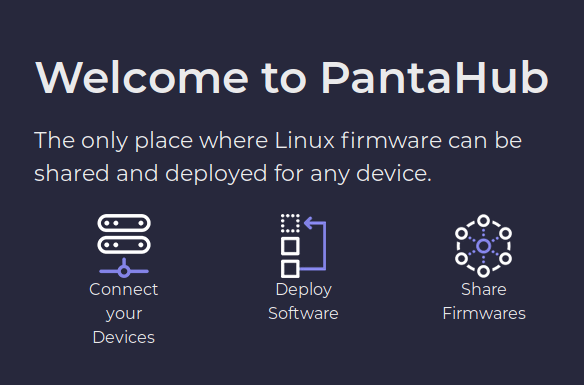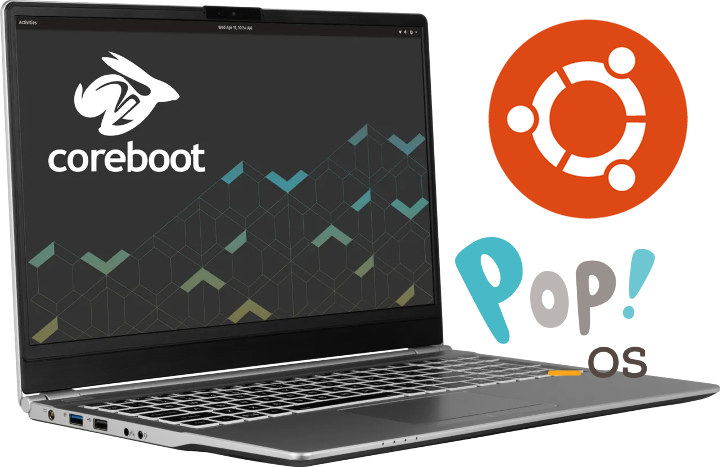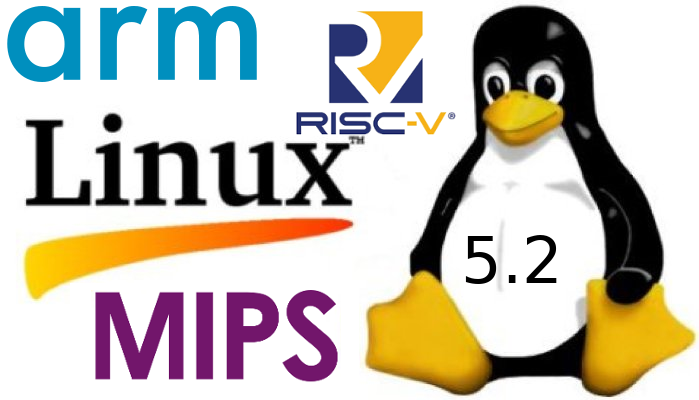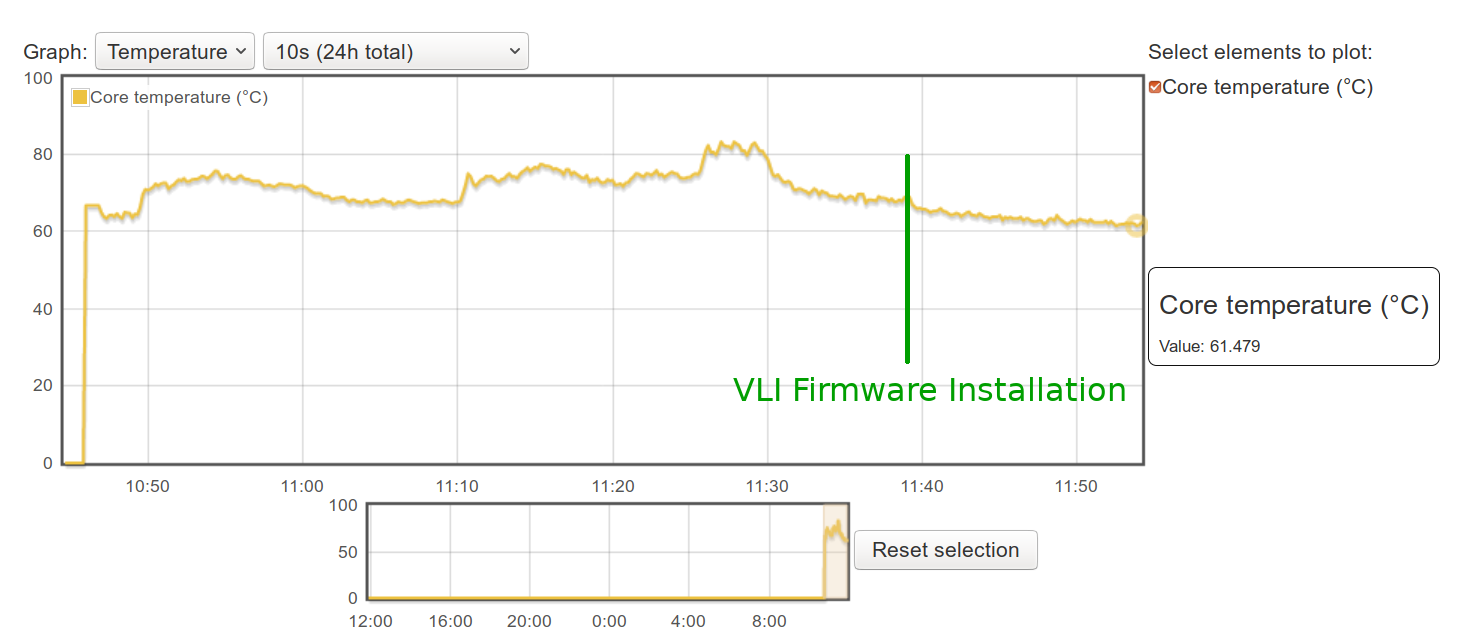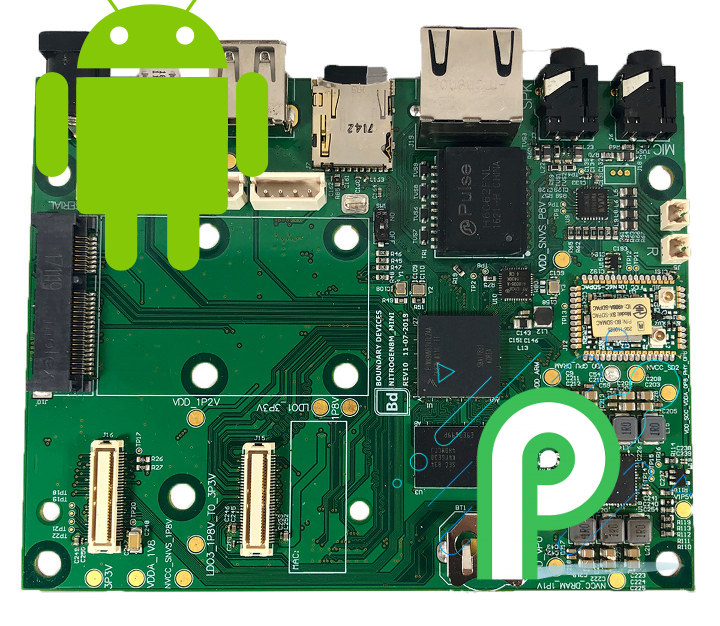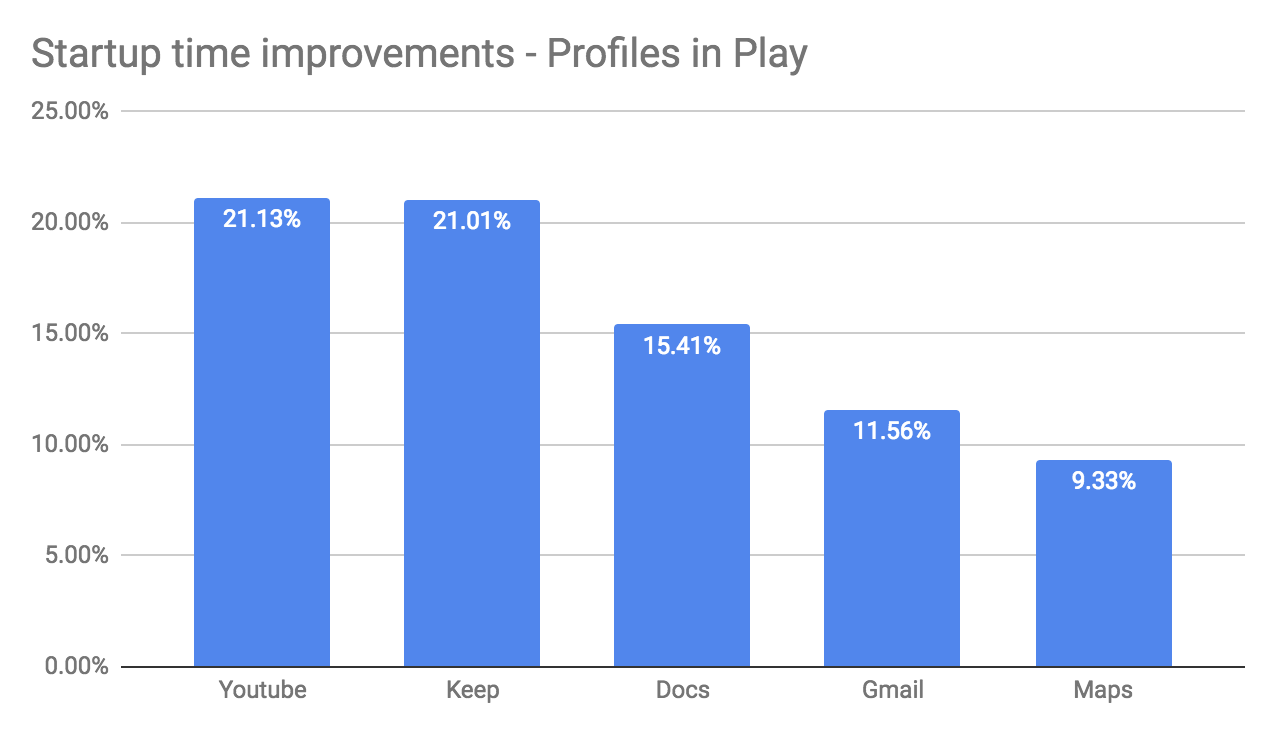Let’s say you’re running Raspbian on your Raspberry Pi 4 board, but would like to check out the latest Ubuntu 19.10 for the board. What would you normally have to do? After downloading the firmware and turning off your Raspberry Pi 4, you’d normally need physical access to your Raspberry Pi 4 to remove the MicroSD card, insert it into your computer and start balenaEtcher or other utility to flash the image. Once it’s done remove the MicroSD card from your PC and insert it back into the Raspberry Pi SBC, before booting it up. That’s fine for experimentation, but time-consuming if you had to do this for multiple boards that may be placed in various locations. That’s where Pantacor’s PantaHub, PantaVisor, and PVR utility come in. Pantahub is a web dashboard used for registration, to monitor your devices, and documentation, Pantavisor is an Alpine Linux based device init system […]
System76 Introduces two Intel Comet Lake Linux Laptops with Coreboot Firmware
Intel officially launched Comet Lake processors last August with Y-series (4.5-5.5W TDP) and U-Series (15W TDP) targeting 2-in-1 hybrid laptops and tablets. Since several Windows 10 Comet Lake laptops launched such as OneMix 3Pro 8.4″ mini laptop with an Intel Core i5-10210Y Comet Lake-Y processor. If you’d rather get a Comet Lake laptop running Linux, System76 got you covered with two models, namely Galago Pro and Darter Pro laptops running a choice of Pop!_OS 19.10 (64-bit), Pop!_OS 18.04 LTS (64-bit), or Ubuntu 18.04 LTS (64-bit) operating systems, as well as System76 open firmware based on Coreboot, EDK2, and System76 firmware apps. Galago Pro & Darter Pro share many of the same specifications, except for the display, battery, and other items highlighted in bold: SoC (one of the other) Intel Core i5-10210U quad-core/eight-thread processor @ 1.6 GHz / 3.9 GHz (turbo all cores) / 4.2 GHz (turbo one core), 24EU Intel […]
Linaro Connect San Diego 2019 Schedule – IoT, AI, Optimizations, Compilers and More
Linaro has recently released the full schedule of Linaro Connect San Diego 2019 that will take place on September 23-27. Even if you can’t attend, it’s always interested to check out the schedule to find out what interesting work is done on Arm Linux, Zephyr OS, and so on. So I’ve created my own virtual schedule with some of the most relevant and interesting sessions of the five-day event. Monday, September 23 14:00 – 14:25 – SAN19-101 Thermal Governors: How to pick the right one by Keerthy Jagadeesh, Software Engineer, Texas Instruments With higher Gigahertz and multiple cores packed in a SoC the need for thermal management for Arm based SoCs gets more and more critical. Thermal governors that define the policy for thermal management play a pivotal role in ensuring thermal safety of the device. Choosing the right one ensures the device performs optimally with in the thermal budget. […]
Arm Techcon 2019 Schedule – Machine Learning, Security, Containers, and More
Arm TechCon will take place on October 8-10, 2019 at San Jose Convention Center to showcase new solutions from Arm and third-parties, and the company has now published the agenda/schedule for the event. There are many sessions and even if you’re not going to happen it’s always useful to checkout what will be discussed to learn more about what’s going on currently and what will be the focus in the near future for Arm development. Several sessions normally occur at the same time, so as usual I’ll make my own virtual schedule with the ones I find most relevant. Tuesday, October 8 09:00 – 09:50 – Open Source ML is rapidly advancing. How can you benefit? by Markus Levy, Director of AI and Machine Learning Technologies, NXP Over the last two years and still continuing, machine learning applications have benefited tremendously from the growing number of open source frameworks, tools, […]
Linux 5.2 Release – Main Changes, Arm, MIPS & RISC-V Architectures
Linus Torvalds announced the release of Linux 5.2 last Sunday: So I was somewhat pre-disposed towards making an rc8, simply because of my travels and being entirely off the internet for a few days last week, and with spotty internet for a few days before that [*]. But there really doesn’t seem to be any reason for another rc, since it’s been very quiet. Yes, I had a few pull requests since rc7, but they were all small, and I had many more that are for the upcoming merge window. Part of it may be due to the July 4th week, of course, but whatever – I’ll take the quiet week as a good sign. So despite a fairly late core revert, I don’t see any real reason for another week of rc, and so we have a v5.2 with the normal release timing. There’s no particular area that stands […]
New Raspberry Pi 4 VLI Firmware Lowers Temperature by 3-5°C
The other day I tested Raspberry Pi 4 with an heatsink since previous multi-threaded benchmarks clearly made the board throttle when running those without any cooling solution. The guys at the Raspberry Pi Foundation somehow noticed my post, and I received an email from Eben Upton explaining a new Raspberry Pi 4 VLI firmware had “some thermal optimizations that are not installed by default on early production units.” I did not understand VLI at first, but eventually understood this referred to the firmware for VIA VL805 PCIe USB 3.0 controller on the board. The Raspberry Pi Foundation provided me with a test version of the firmware, which they’ll release in the next few days, or weeks after testing is completed. Now if you’re going to test a platform that will throttle due to overheating, it’s very important you do so at constant room temperature. I work in a office where […]
Boundary Devices NXP i.MX 8M Mini Board Gets Android 9.0 Firmware
Beside Debian 9.5, Ubuntu 18.04, the Yocto Project, and Buildroot Linux, NXP i.MX 8M Mini processors also supported Android 8.1 Oreo. But Boundary Devices has just announced their Nitrogen8M_Mini single board computers is now getting support for Android 9.0 Pie operating system. The company worked with Kynetics to release an Android 9.0 evaluation image for the i.MX8M Mini boards based on Linux 4.14.x kernel. You can also get the source code to build it from scratch for your board:
|
1 2 3 4 |
mkdir myandroid cd myandroid repo init -u git://github.com/boundarydevices/android-manifest.git -b boundary-imx-p9.0.0_1.0.0-ga repo sync |
You’ll also need NXP vendor package, which you can install as follows:
|
1 2 3 4 5 6 |
tar xvzf imx-p9.0.0_1.0.0-ga.tar.gz cp -r imx-p9.0.0_1.0.0-ga/vendor/nxp/ vendor/ cp -r imx-p9.0.0_1.0.0-ga/EULA.txt . cp -r imx-p9.0.0_1.0.0-ga/SCP* . rm -rf imx-p9.0.0_1.0.0-ga/ rm imx-p9.0.0_1.0.0-ga.tar.gz |
The last step is to build the code:
|
1 2 3 |
source build/envsetup.sh lunch nitrogen8mm-userdebug make 2>&1 | tee build.out |
You can find more details, including instructions to flash the image in the getting started guide. The image and source code are only suitable for evaluation, and you’d have to work yourself to get a production-ready version with security patches, field upgrade, and performance improvements, or ask Boundary […]
Android Q Beta and Preview SDK Released
Google has just announced the first public release of Android Q dubbed “Beta 1”- for Pixel devices only – as well as the corresponding preview SDK for developers. Android Q is said to bring additional privacy and security features for users, enhancements for foldables, new APIs for connectivity, new media codecs and camera capabilities, NNAPI extensions, Vulkan 1.1 support, faster app startup, and more. What’s new in Android Q Privacy protections improvements More control over location with multiple options to “allow all the time”, “allow only while the app is in use” (e.g. not while running in the background), and “deny” Users will be able to control apps’ access to the Photos and Videos or the Audio collections via new runtime permissions Android Q will prevent apps from launching an Activity while in the background, relying on high-priority notifications instead Access to non-resettable device identifiers, including device IMEI, serial number, […]


